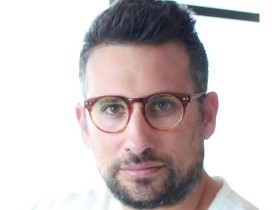Reckoning with the Past for Israel, Palestine and Australia: More Justice, Less Law-Jeremie Bracka
Jeremie Bracka, author of discusses how nations can reckon with legacies of human rights abuse through truth commissions and civil society to advance the goals of accountability, peace-building and genuine reconciliation.
Tell us about the nature of your work
My research examines the role of restorative justice and truth-telling in ongoing ethno-national conflict. The research specifically explores the transitional justice paradigm and the normative value of truth commissions to the Israeli-Palestinian conflict and Australia. Transitional justice is an interdisciplinary area of law, which involves a nation reckoning with its past, the recognition of victims and seeking accountability, reconciliation, and truth-telling at times of transition.
There has been virtually no scholarship on the truth commission model for ongoing conflict over the past decade. In fact, there has been scant attention devoted to a transitional justice mechanism in the Middle East, let alone one, created during conflict, or one seeking to investigate events beyond 1948, as well as abuses on both sides. At present, most academic attention devoted to human rights accountability in Israel/Palestine is on the International Criminal Court (ICC). My research therefore challenges state-centred paradigms and retributive justice approaches to legal violations. In particular, I creatively explore the potential role of unofficial truth-telling measures and restorative justice for mass atrocity. At a time of unprecedented debate around the colonial past, a follow-up book is under consideration on the role of truth commissions in mature democracies and its potential contribution to reconciliation for Indigenous Australia. This research will critically engage with the Yoo-rrook Justice Commission initiative in Victoria and other recent truth-telling measures in the US and Belgium.
As a civil society advocate, I am also engaged in outreach activities on topical human rights issues and public policy. In 2016, I was part of the creative and legal team that developed the Castan Center for Human Rights multi-media campaign on human rights in Australia. The innovative project called Have You Got That Right? involved a series of videos answering important human rights questions for the wider public. I was one of the writers framing the public conversation on discrimination, privacy, asylum, and prisoners¡¯ rights in Australia. In 2018, I presented my PhD thesis across Israel as part of a civil society initiative called Have You Seen the Horizon Lately? which show-cases creative solutions to the Israeli-Palestinian conflict. These sessions involved roundtables and multimedia presentations with the wider public.
What do peace and democracy mean to you personally?
More than reforming the old game, peace must change the game altogether. Effective peacebuilding not only ends human rights violations, it also transforms collective identities and moral context. To me peace is not just the absence of war it is the creation of an ethos of peace. As a transitional justice academic, I believe in the desirability of truth-telling, justice-seeking discourse and reconciliation processes to conflict resolution. My research continues to highlight the significance of the transitional justice paradigm, and its capacity to apply a retrospective as well as restorative approach to conflict resolution. Given the centrality of history and the legacies of human rights abuse to Israelis and Palestinians, it is contended that engagement with transitional justice may play a determinative role in the peaceful resolution of the conflict, especially one that is so entangled in the politics of national identity.
Visit our SDG16 hub for selected research content and more discussions around Peace, Justice and Strong Institutions.
Dr Jeremie M Bracka is an Australian-Israeli human rights lawyer and academic at Monash University (Melbourne). He was a Transitional Justice postdoctoral fellow and lecturer at Hebrew University, Minerva Center for Human Rights (Jerusalem). He lectures in constitutional law, torts, human rights law, international criminal law and transitional justice. His PhD from Monash University (2020) focused on transitional justice in ongoing conflict and specifically Israel/Palestine. Jeremie has been widely published in Oxford University Press, the Vanderbilt Journal of Transnational Law and the Melbourne Journal of International law. In 2018, Jeremie won the Monash University Law Publication Award for his chapter in Law and Memory: Towards Legal Governance of History (Cambridge University Press, 2017). He has worked as a legal advisor at the International Criminal Tribunal for Rwanda (2004), Israel¡¯s Permanent Mission to the U.N (2009), Israel¡¯s Supreme Court (2010) and the Israeli Ministry of Foreign Affairs (2011-13).



